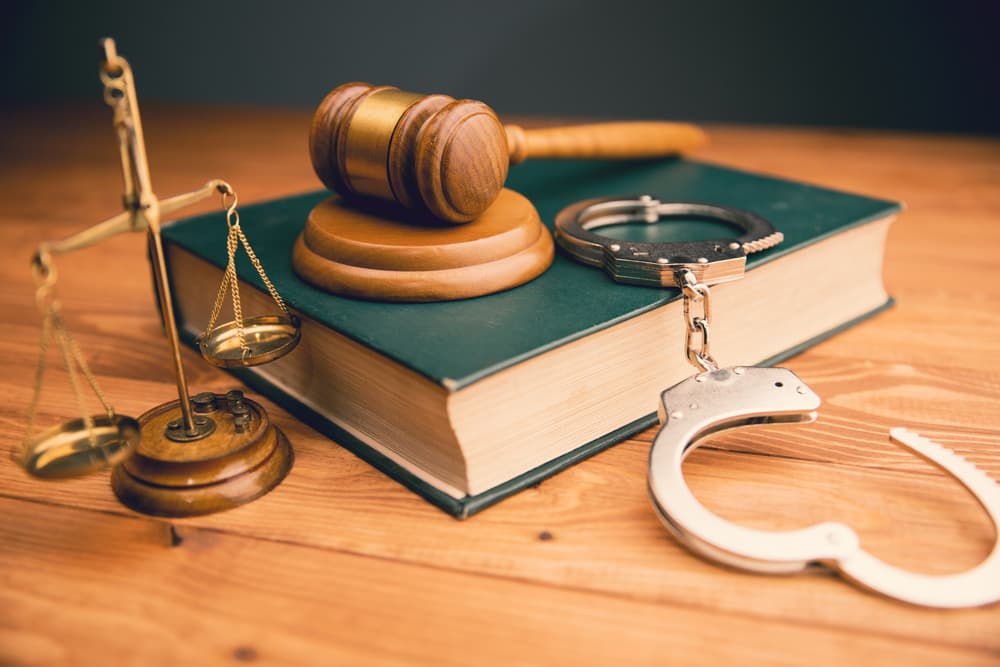When someone faces homicide charges, they enter a world where every detail matters and where having skilled legal representation can mean the difference between freedom and life imprisonment. Laws regarding homicide stretch back through decades of legal precedent and continue to evolve through new court decisions and legislative updates.
That’s why you need to call a criminal defense attorney if you’re charged with homicide. Don’t risk your future by taking a case yourself. Legal representation can mean the difference between several years of harsh punishment and a reduced charge. An attorney will know how to negotiate so their client can experience a better outcome in their case.
First-Degree Murder
First-degree murder represents the most serious homicide charge possible.
The first involves premeditation – when someone thinks about taking another person’s life and then follows through with that plan. Picture someone who purchases a weapon, learns their victim’s schedule, and waits for the right moment to act. The time between the initial thought and the action might be brief – courts have established that even a few moments of premeditation can satisfy this requirement.
The stakes couldn’t be higher for first-degree murder charges, with possible sentences upon conviction being death or life imprisonment without the possibility of parole. This alone underscores why having an experienced criminal defense attorney becomes a matter of life and death.
Second-Degree Murder
Second-degree murder, occurs when someone kills another person through an act imminently dangerous to another – demonstrating a depraved mind that disregards human life. Unlike first-degree murder, the act doesn’t require premeditation.
Second-degree murder can carry a maximum life sentence in prison in some states. However, with proper legal representation, defendants might have opportunities to present mitigating factors that can lead to a lesser sentence or even a reduction in charges.
Third-Degree Murder

Third-degree murder, is when someone unintentionally causes another person’s death while committing a non-violent felony. For example, if someone dies during a drug deal gone wrong, the person selling the drugs might face third-degree murder charges.
While less severe than first or second-degree murder, it still demands serious attention and a professional legal defense. A skilled attorney might identify ways to challenge the underlying felony charge, which can lead to a dismissal of the murder charge altogether.
Manslaughter
Voluntary manslaughter often involves what people call crimes of passion – when someone kills another person in the heat of the moment, without malice aforethought. For instance, walking in on a spouse’s infidelity and immediately reacting with deadly force might lead to voluntary manslaughter charges rather than murder.
Involuntary manslaughter occurs when someone’s recklessness or negligence leads to another person’s death. Consider a parent who leaves a loaded firearm within reach of small children, resulting in a tragic accident. While they never intended harm, their negligence led to death.
Aggravating and Mitigating Circumstances
The law recognizes various factors that can increase or decrease the severity of homicide charges and the potential sentences.
Aggravating Factors
Aggravating circumstances might prevail if the victim was a law enforcement officer or a killing happened during another criminal act. They may also come into play if the victim was notably vulnerable (a child, disabled, or elderly) or the killing was especially cruel or heinous.
Mitigating Factors
Mitigating factors or circumstances can be considered in the following instances:
- The defendant has no prior criminal history
- They acted under extreme emotional distress
- They played a minor role in a group action
- They showed genuine and sincere remorse
A defense attorney’s ability to effectively present mitigating circumstances while challenging aggravating factors can dramatically affect the outcome of a case.
The Responsibilities of a Criminal Defense Attorney
When someone faces homicide charges, they don’t just need a lawyer – they need an advocate who understands the intricate details of homicide laws – who knows how to build an effective defense strategy. A criminal defense attorney brings several essential elements to a homicide case:
- Evidence Analysis: They will examine every piece of evidence, looking for inconsistencies, constitutional violations in how the evidence was collected, and alternative explanations for what occurred.
- Witness Interviews: Defense attorneys and their investigators speak with witnesses, often uncovering new perspectives or information the initial police investigation missed.
- Legal Strategy: They identify the most effective defense approach, whether it involves challenging the charges directly, negotiating with prosecutors, or preparing for trial.
- Constitutional Protection: They ensure law enforcement and prosecutors respect their client’s constitutional rights.
Possible Defenses for Homicide Charges
The law recognizes several defenses to homicide charges:
- Self-Defense
- Accidental Death
- Mistaken Identity
- Mental Health
Taking a More Positive Path: Tips for Going Forward with Your Case
Anyone facing homicide charges should remember several important points:
- Everything they say can affect their case. Speaking only through an attorney protects their rights and interests.
- Time matters. Evidence can disappear, witnesses’ memories fade, and legal deadlines approach quickly.
- The quality of legal representation can affect the rest of one’s life. It is essential to take the time to find an experienced criminal defense attorney.
- The legal system offers various pretrial options. These options include bond hearings, evidence suppression motions, and plea negotiations. A skilled attorney knows how to use these tools effectively.
A Criminal Defense Lawyer Will Protect Your Rights After a Homicide Charge

Homicide laws reflect society’s effort to balance justice with an understanding that each case involves unique circumstances to investigate. While the law sets clear categories and penalties, it also provides opportunities for a legal defense.
For anyone facing homicide charges, the choice of legal representation is the most important decision overall. The criminal justice system presents many challenges, but an experienced criminal defense attorney can guide clients through the process while protecting their rights.
No one should face homicide charges without strong, experienced legal representation at their side.
Contact a Criminal Defense Lawyer About Your Homicide Case Now
Remember, in the American justice system, everyone deserves a vigorous defense, regardless of the charges they face. The right attorney turns this principle into a reality by working to ensure their client receives fair treatment under the law. If you’ve been charged with homicide, contact a criminal defense lawyer who handles these cases. Get the guidance and advocacy you need right away. Contact a criminal defense lawyer today.

